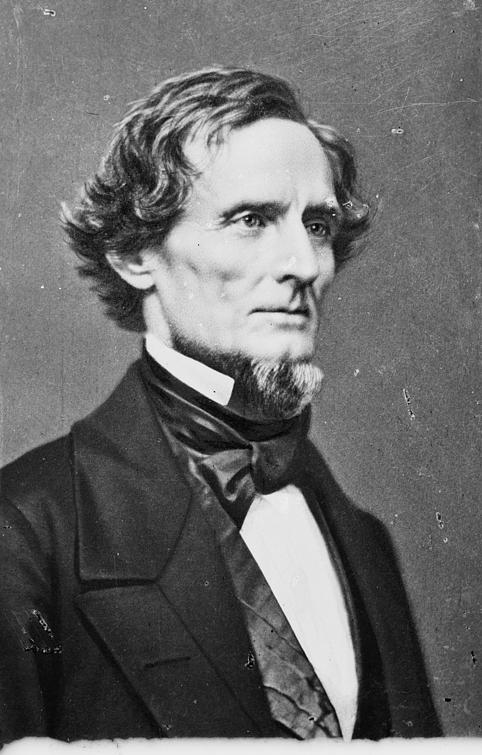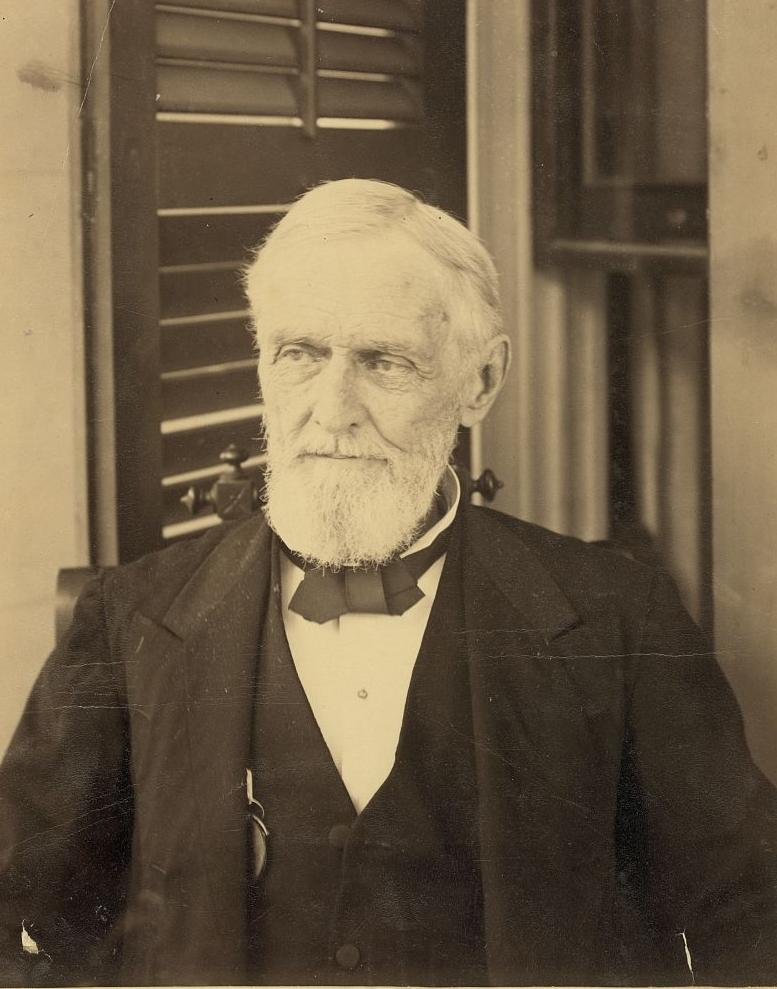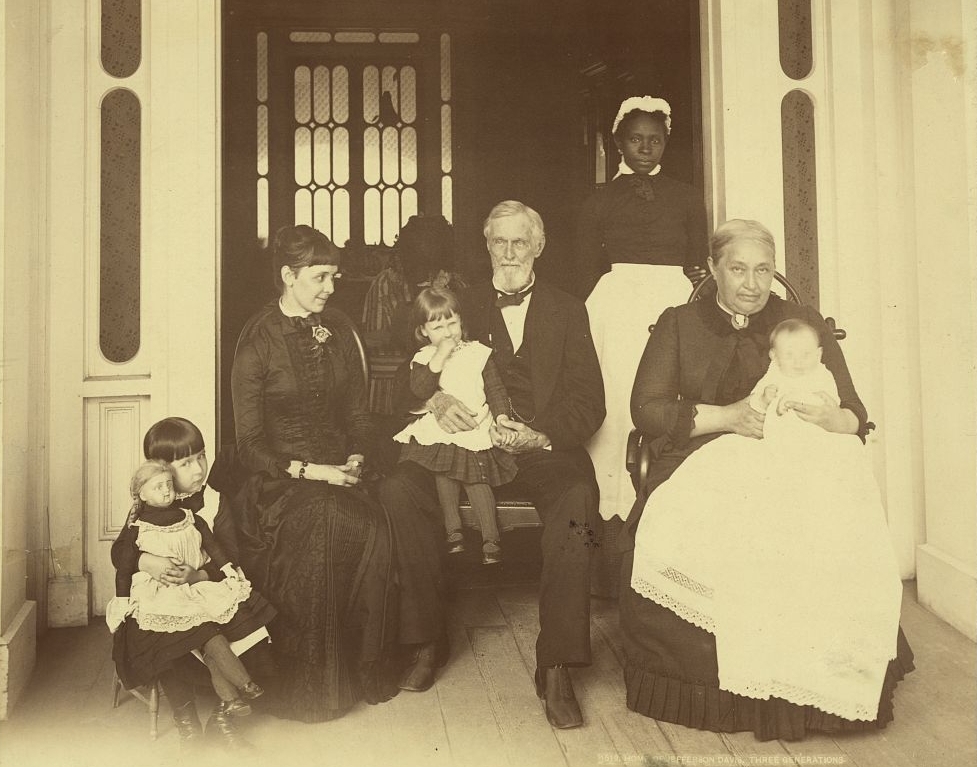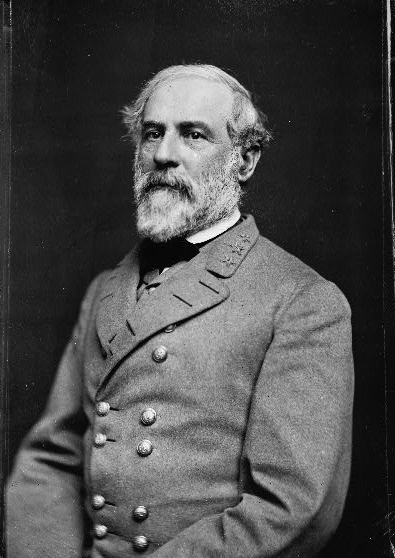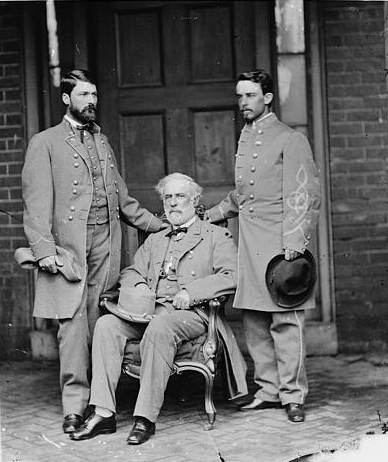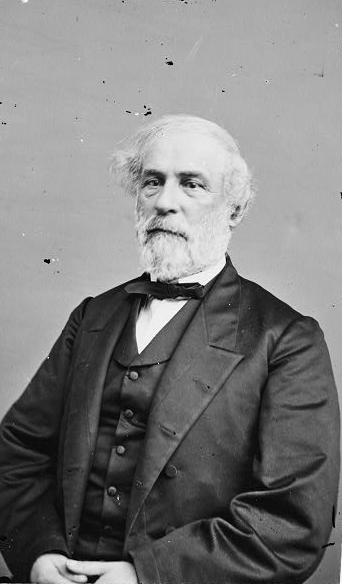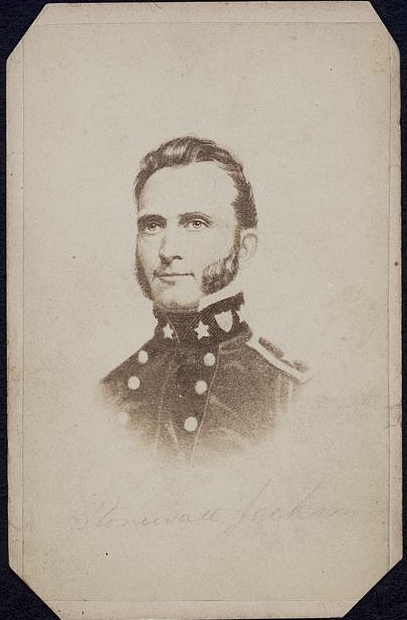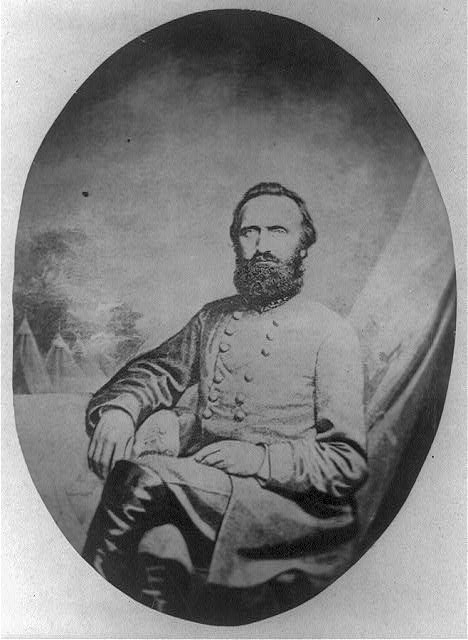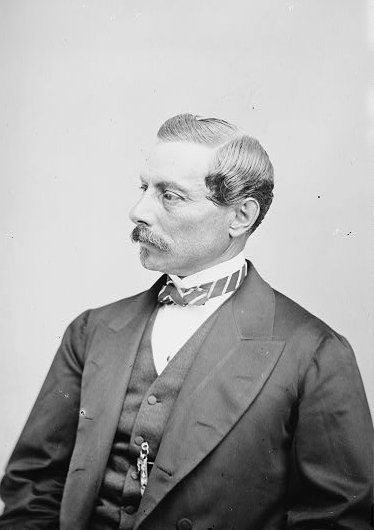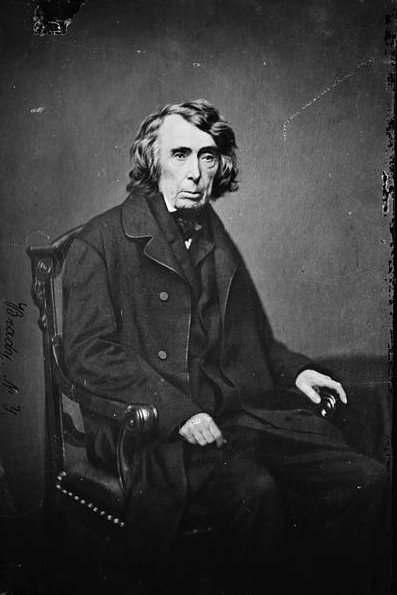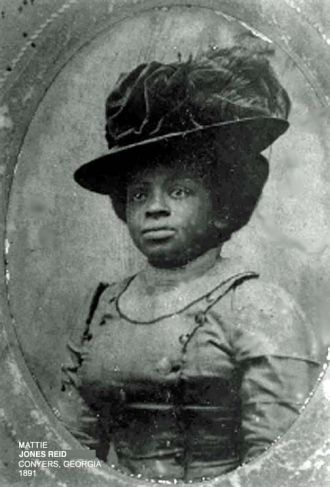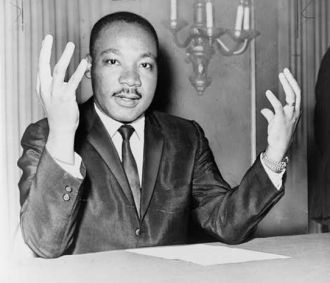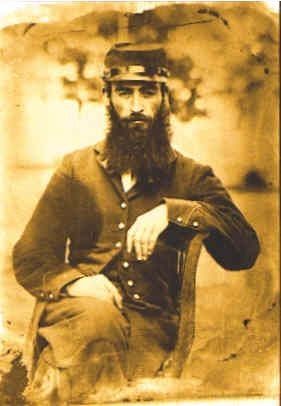
Jefferson Finis Davis, President of the Confederate States of America
 Kathy Pinna
Kathy Pinna Previously a (Democratic) U.S. Senator from Mississippi and the United States Secretary of War, Davis resigned his Senate position and was easily elected President of the Confederacy.
 Kathy Pinna
Kathy Pinna After 2 years in jail, he was never tried and therefore released.
 Kathy Pinna
Kathy Pinna In the late 1880's, Davis began to urge Southerners to reconcile with the North and be loyal to the United States but he still considered "Yankee and Negro" rule in the South oppressive. And he still thought that the South's secession had been constitutional.
He eventually died on Friday, December 6, 1889 and his funeral was one of the largest that the South had ever seen.
Robert E. Lee, Confederate General
 AncientFaces
AncientFaces The son of a Revolutionary War officer, Lee was a top graduate of the United States Military Academy and served as its Superintendent before the Civil War.
 AncientFaces
AncientFaces At first a senior military advisor to President Jefferson Davis, Lee became the commander of the field army in 1862. He surrendered his entire army to the Union on April 9, 1865 at Appomattox, effectively ending the Civil War.
 AncientFaces
AncientFaces He died on October 12, 1870 from the after-effects of a stroke. He was buried without his shoes because the only coffin that could be found (due to heavy flooding at the time) was one that was too short for him.
Thomas 'Stonewall' Jackson
 AncientFaces
AncientFaces Jackson attended West Point and served in the Mexican–American War. But when Virginia seceded, he joined the Confederate Army. A fabulous tactician, his battles in the Civil War are studied today.
 AncientFaces
AncientFaces Jackson died as he lived - as a soldier. On May 2, 1863, he was accidentally shot by his own soldiers and his left arm had to be amputated. He died 8 days later of pneumonia. His view of slavery was: "in his mind the Creator had sanctioned slavery, and man had no moral right to challenge its existence. The good Christian slaveholder was one who treated his servants fairly and humanely at all times."
Pierre Gustave Toutant-Beauregard (General G. T. Beauregard)
 AncientFaces
AncientFaces Born in Louisiana and trained as an engineer, Beauregard was the Superintendent of West Point when the South seceded. Resigning from the U.S. Army, he became the first brigadier general of the Confederate Army. Winning many major battles, by 1865 he (along with his commander) convinced the leaders of the Confederacy (Jefferson Davis and the remaining cabinet members) that the war needed to end.
After the war, he swore an oath of allegiance to the Union and was pardoned for his activities in the Civil War. He became a promoter of the Louisiana Lottery (making his fortune) and died at the age of 74, in his sleep.
Chief Justice Roger Brooke Taney
 AncientFaces
AncientFaces Why is this Northerner considered a Confederate hero? As the Chief Justice of the Supreme Court, Taney presided over the Dred Scott v. Sandford decision. He held that the "Congress had no authority to restrict the spread of slavery into federal territories, and that previous attempts to restrict slavery's spread, such as the 1820 Missouri Compromise, were unconstitutional." He also noted that African Americans, free or slave, had not been considered part of the original community of people covered by the Constitution, but people of "an inferior order" going on to say that "they had for more than a century before been regarded as beings of an inferior order, and altogether unfit to associate with the white race, either in social or political relations, and so far unfit that they had no rights which the white man was bound to respect".
Fact: Did you know that there are over 700 Confederate monuments and statues in the United States - not all of them in the South?
Have photos that you'd like to see included? Share your photos or see more photos of the Civil War on the next page.

